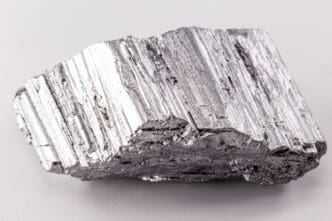Executive Summary
The Story So Far
Why This Matters
Who Thinks What?
Chinese rare earth magnet manufacturers have been experiencing increased scrutiny on export license applications since September, according to industry sources. This comes even before Beijing’s recent expansion of controls over these critical minerals used in various high-tech applications. The tightened review process raises questions about China’s commitment to a trade truce with the U.S. and its potential intent to further control global magnet shipments.
Increased Scrutiny on Exports
The intensified scrutiny began in September, with applications now more frequently returned for additional information, sources familiar with the matter indicated. While approvals generally remain within the commerce ministry’s 45-business-day deadline, the current level of review mirrors the strictness seen in April, during the peak of the U.S.-China trade dispute.
That earlier period saw significant delays, leading to magnet shortages and production halts at automotive factories. The sources, who requested anonymity due to the sensitivity of the issue, declined to specify the exact duration of delays or the nature of the additional questions being asked.
Rare Earth Export Data
This development coincides with a 31% drop in China’s overall rare earth exports in September, according to data released this week. Although the data does not differentiate between various rare earth products, one source suggested that the difficulty in obtaining new licenses likely contributed to the decline.
China maintains its position as the world’s leading supplier of rare earths, a group of 17 elements essential for products ranging from electric vehicles and wind turbines to military radars and other advanced technology.
Expanded Controls and International Reaction
Last week, Beijing formally expanded its controls over rare earth exports, a move that prompted a strong reaction from the United States. President Trump initially threatened additional tariffs and retaliatory export bans, though he later adopted a more conciliatory stance. The new regulations are set to take effect on November 8.
The announcement of expanded controls has led to a surge of inquiries from foreign clients attempting to expedite orders before the new rules are implemented, sources noted. China’s commerce ministry did not respond to a Reuters request for comment on license approvals.
Industry Concerns
Adam Dunnett, Secretary-General of the EU Chamber of Commerce in China, confirmed that a primary concern for members remains the bottleneck in rare earth product applications. He added that the chamber has observed both approvals and delays for its members over recent weeks, with some companies facing extended waits without clear explanations.
Dunnett stated that the level of anxiety and concern among members has not decreased, highlighting the ongoing uncertainty in the market.
Outlook
The escalating scrutiny on rare earth magnet export licenses and China’s expanded controls signal a potential tightening of its global supply dominance. This situation creates uncertainty for international industries reliant on these critical materials, despite earlier commitments to facilitate trade.








